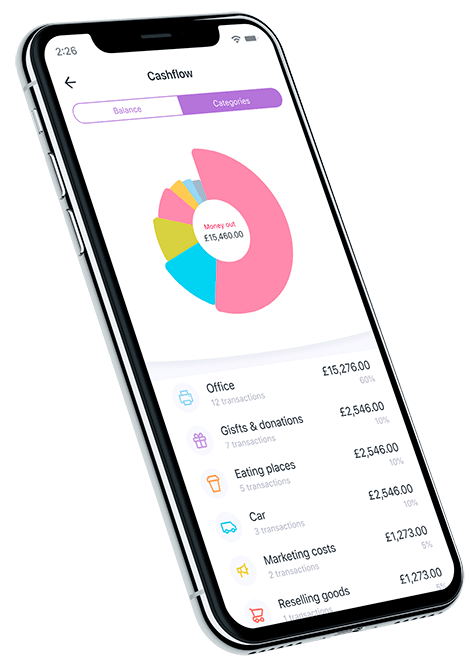How to open the right bank account for your business

Keeping your finances simple is a priority for any small business owner. It means more time for your customers, less paperwork and more opportunities to turn a profit. But with so many business banking options on the market, choosing the right account isn't always as straightforward as it might seem. It can be tempting to simply stick with what you know, or go for the cheapest. But if you look a little closer, there are a range of interesting alternatives to the tried and tested. It's now possible to find banking services designed with a ‘company of one’ in mind; delivered by people who've taken the time to understand a small business' strengths and weaknesses; who can lend a hand with the admin and bookkeeping, or a technical ear to address those common, day-to-day business bugbears.
Here we take a look at the advantages of both business and personal accounts, what types there are, how easy they are to manage, which benefits may or may not suit you - and how choosing the right service could increase your chances of success. We've come up with five key questions to consider before shopping around.
Do I need to open a business bank account?
It's a good question to kick off with. Actually, if you're a sole trader, you don't need a dedicated business account. There are, however, several advantages to having one. For a start, you won't mix up your personal and business costs - which helps when paying your taxes, or small business insurance. You'll also be able to put your finger on all your business-related expenses more easily and get a clearer understanding of how your company is performing. It's worth remembering too, that banks can sometimes close personal accounts if they see a large number of business transactions rack up. Then there's the image you want to project: a professional look attracts clients and suppliers. Plus the perks: banks offer all sorts, from access to a personal business manager and annual performance reviews to help with invoicing and accounting, gym memberships, money off on insurance products, air miles…there’s plenty to draw you in.
So why wouldn’t you use business banking then? Well, some sole traders prefer to keep their existing personal accounts. Force of habit, maybe. Or perhaps they enjoy the benefits they currently have: bonus schemes, travel discounts, mobile phone protection, for example. Others may consider another account a hassle, or decide business banking is too expensive. While it's true that, technically, you might be able to avoid fees altogether by using a retail account, you’ll almost certainly miss out on those more cohesive business-specific services that save you time and stress. Having to close your account just when you’re enjoying an uptick in fortunes wouldn't be ideal either.
Which business banking options would suit a small business like mine?
Just as there are different types of businesses, there are different types of business bank accounts. That's good news for entrepreneurs and sole traders. If your customers tend to pay by cheque and cash, you'll probably look for a bank with branches close by. If you like the idea of face-to-face meetings with a bank manager to raise finance or business loans, again, the high street option makes sense. Similarly, if you need a bank with international reach to smooth overseas payments, you're more likely to look at the larger operators. Bear in mind though, you can wait up to three weeks to open a high street account, and you'll usually be asked to produce your ID in person; they delve pretty deep with the background checks too. Also, high street banks have a habit of tying you to full website versions of their banking platforms for certain tasks, which can be frustrating if you're looking for 24/7, pocket-friendly mobile banking. They haven't quite shaken off the legacy of lengthy logins and hard-to-remember passwords, or queuing on the phone to report issues like lost cards. Their size doesn't help, of course. It's much more challenging to maintain across-the-board appeal and respond quickly and personally to a customer's urgent needs, when you have several million customers in your database. If you can get fast, human answers in an app, with all the details in front of you, why would you queue on the phone?
Digital, mobile banking, by contrast, puts the customer first and is agile enough to roll out new features based on word of mouth and hard data, often purpose-building solutions to solve customer issues. To a user of a digital bank, the feedback loop feels much more personal and engaging. Even without logging in, you can usually find fast answers to trending concerns on Twitter, and cross-reference with like-minded peers via community or chat pages. Big banks don’t risk anything other than maintaining a comfortable, corporate arm's length on their Twitter feeds. Whereas smaller, younger, mobile banks talk to you more like a helpful peer. For these reasons, many smaller UK-based businesses, start-ups and companies of one are switching to smaller, more flexible, more user-centred 'mobile-first' banking alternatives. If it's greater control you're after, with data available wherever you are, smartphone banks could be the winner.
Shouldn’t I just look for the lowest priced business banking?
This seems sensible on the face of it. But price is only part of the equation. How business banks charge (and how much) varies hugely. When asked, small businesses routinely single out time management as their greatest challenge, especially sole traders. So any time you can claw back becomes a priceless commodity.
One thing to watch out for is banks who keep quiet about limits on monthly deposits. When you exceed your limit, your account will automatically upgrade to a new ‘subscription plan’ with a higher monthly price. Sneakily, however, downgrading from these plans can be problematic - or banned. So read your terms and conditions carefully.
Another aspect to be aware of is any bank who claims transfers are free, but in reality only the first 10 or 20 transactions turn out to be. To some sole traders getting through 10 transactions could take as little as two weeks; then you’re suddenly jumped on with new charges. You shouldn’t bear costs for incoming transfers, but again always check. For example, some banks tell you all transactions are free but cash in with ATM charges or post office deposit fees. And pay attention to services you think you might be expecting, but are excluded from with some tiered subscription plans.
Bigger banks can be guilty of focusing too much on delivering premium services to high-value businesses, with aspirational literature and products geared towards upscaling and growth. They don't particularly need to attract the self-employed business owner, so they don't go after their custom or build functionality for them. They’re also prone to drawing you in with introductory rates, but then hiking transaction fees or monthly charges after that. As a general rule, the more transactions you make on an account, the higher the charges are likely to be. So if you pay suppliers, or raise a lot of invoices, but aren't a small print kind of person, you may prefer services with a flat monthly fee. You know where you are with your budget, and since there is fierce competition for your business, you can expect the features and perks to keep coming. At the top end, services may stretch to reduced-price legal assistance or accounting software, but you'll see that reflected in the monthly or quarterly charge. Watch out too for contract or term lengths, and how easy it is to exit a bank account. You may find you're tied into a contract, or it may be difficult to switch to a better deal until a set period of time has elapsed.
How quickly can I set up an account?
This is where newer digital-only banks have the goods on their bigger brothers. For businesses setting up a mobile current account in the UK, the process is relatively straightforward. Proof of ID in the form of a passport or driving licence is common. And you can be ready to go in a day or two. With the larger banks, you often wait days or weeks to set up. Expect to produce a utility bill too, and in some cases, you'll need to prove your own personal financial situation, with documents that demonstrate a clean credit and banking history. Most business banks like to meet in person before you can start a business account, but again, the digital-only app banks have a solution for this. By recording a short video, you 'meet in person'. Plus, you’ve also got a handy resource to confirm your identity should you ever fall victim to fraud.
Who can offer me the killer services to help my business?
We think mobile banking carries the day for small businesses. One advantage you'll notice straight away is how neat and uncluttered app banks are. Because you're placed at the centre of everything, by definition, you have in front of you what you need, on your dashboard. As well as giving you complete, personal, centralised control, you'll almost always benefit from reduced admin and superior expenses reconciliation too. Of course, not all banking apps include expenses, invoicing and tax calculators. So your challenge here is to find the one that has the products you need. Until recently, small businesses have had to juggle a banking app, an accountancy app (or other software) and even perhaps an app that captures receipts. Now they're being rolled into one complete service that includes invoice prepping and tracking, accountancy support, Direct Debit management and intelligent card control. Make sure you choose an account with a contactless debit card and the ability to manage it from the app - as well as one that gives on-screen PIN reminders. With some, you can freeze your card if it goes missing, rather than having to report it lost or stolen over the phone.
Getting everyday banking done when you're out and about really helps sole traders and cuts down on evenings and weekends spent at the laptop. In some apps you can set up new payees without needing to do it online first, and keep your books updated in close-to-real time. Much of this is done for you by colour-coding your spending in charts, so you can see how much money is going into certain parts of your business. Another welcome feature is push notifications to your home screen for payments in and out, or in some cases for late invoices and missed payments.
Ultimately, it's your call. What suits your small business may not suit another. But by taking into account all of the above, including demands on your time, and how useful interconnected services can be, you’ll be able to make an informed decision that suits your small business.

Download now!
And you can open a business account with all the support you need in minutes.




